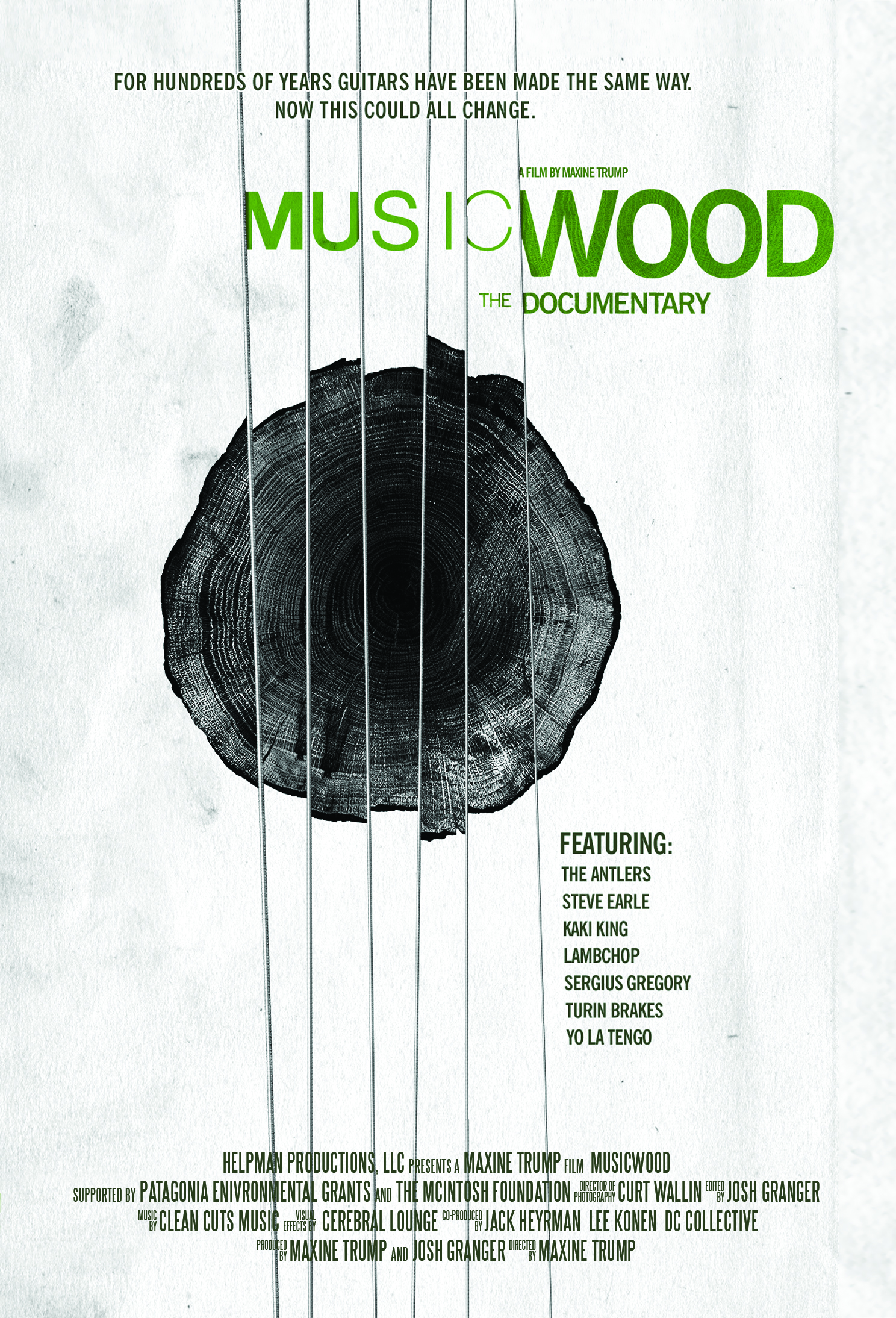by Christine Fisher
 I spent most of my childhood in a New Jersey suburb outside of Philadelphia. My father’s family is Lebanese, and so I grew up regularly hearing music, dancing, singing and eating delicious home cooked specialties. I have fond memories of large family get togethers where my two aunts would entertain us with their tambourine and acoustic guitar. Once the music started, the party started! I cherish my memories of those times.
I spent most of my childhood in a New Jersey suburb outside of Philadelphia. My father’s family is Lebanese, and so I grew up regularly hearing music, dancing, singing and eating delicious home cooked specialties. I have fond memories of large family get togethers where my two aunts would entertain us with their tambourine and acoustic guitar. Once the music started, the party started! I cherish my memories of those times.
I was drawn to the documentary Musicwood because of my love of music and my concern about the depletion of natural resources. The two words “music” and “wood” are interconnected in this film and are the backbone of the story. The story involves three parties: the guitar –making giants of Gibson, Taylor and Martin who band together, putting aside their competitive relationships; the Native American-controlled Sealaska Corporation, which owns and is clearing wide swaths of the Tongass National Forest; and Greenpeace, which plays the mediator between the groups.
The tug of war over the Sitka spruce is due to its importance in the manufacture of acoustic guitars; it is highly valued for its ability to produce rich tones. The Native Americans are relying on the sale of the Sitka spruce to generate income for their people, many of whom have and are continuing to experience hard times. The guitar-makers are worried about the future supply of the crucial wood of the Sitka spruce. Greenpeace, also realizing the devastation of the clear-cutting of Tongass National Forest, is trying to educate both the guitar manufacturers and the parties of the negative outcome if the Sitka spruce is not protected.
This film has twists and turns and is acoustically accompanied by the talented musicians of Kaki King, Yo La Tengo, The Antlers and Steve Earle. Musicwood is a rich, passionate story that can transform both music and non-music lovers.
You can see Musicwood at One Earth Film Festival, at Oak Park's School of Rock, on March 8 at 7p.m.
